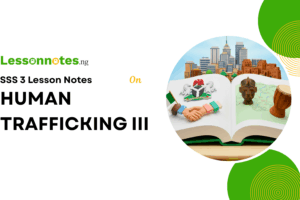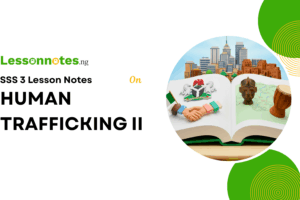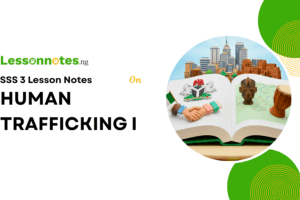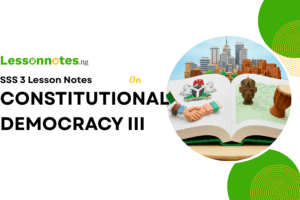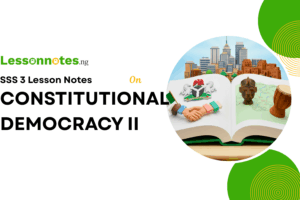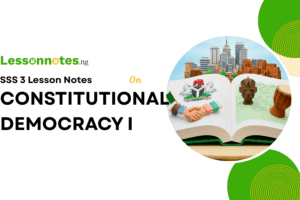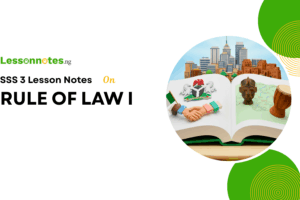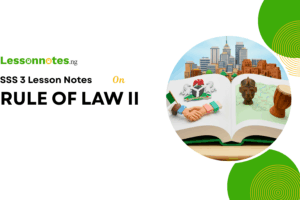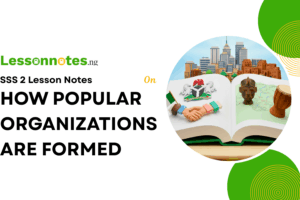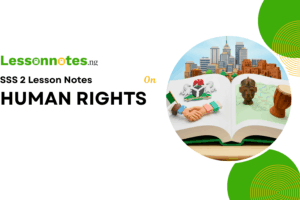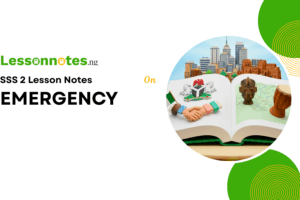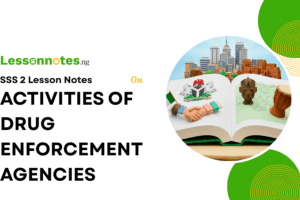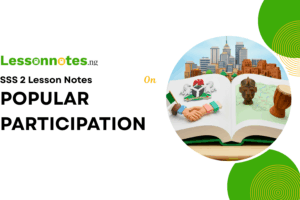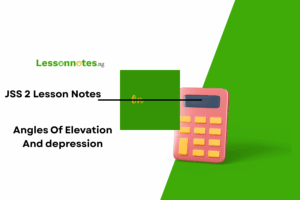Rule Of Law II : Liberty & Types of Liberty SS1 Civic Education Lesson Note
Download Lesson Note
Lesson Notes
Topic: Rule Of Law II : Liberty & Types of Liberty
MEANING OF LIBERTY
Liberty can be defined as the state of being free within society from oppressive restrictions imposed by authority on one’s behavior or political views. In this sense, liberty means freedom from restraints and the freedom to act as one likes. We must understand that we cannot have absolute liberty in our social relationships with one another. If a person has absolute liberty, then he is free to limit or indeed eliminate the freedom of another. Rather, the best we can do is to maximize our freedom by accepting certain limitations on our freedom, so that we do not infringe the freedom of others.
Types Of Liberty- Individual, Civic And Political Liberty
- Natural Liberty: Traditionally the concept of natural liberty has been very popular. Natural liberty is taken to mean the enjoyment of unrestrained natural freedom. It is justified on the ground that since man is born free, he is to enjoy freedom as he will. All restraints negate his freedom. It is popularly believed that man has inherited the right to liberty from nature. Natural reason is the basis of liberty.
- Civil Liberty: The liberty which each individual enjoys as a member of society is called civil liberty. It is equally available to all individuals. All enjoy equal freedom and rights in society. Civil liberty is not unrestrained liberty. It is enjoyed only under some restrictions (Laws and Rules) imposed by the state and society. Civil Liberty is the very opposite of Natural liberty.
- Political Liberty: Good and adequate opportunities for using political rights by the people are defined as political liberty. When people have the freedom to participate in the political process, it is held that they enjoy political liberty. Political liberty involves the freedom to exercise the right to vote, right to contest elections, right to hold public office, right to criticize and oppose the policies of the government, right to form political parties, interest groups and pressure groups, and the right to change the government through constitutional means.
- Individual Liberty/ Personal Liberty: Individual liberty means the freedom to pursue one’s desires and interests as a person, but which do not clash with the interests or desires of others.
- National Liberty: National liberty is another name for the independence of the nation. To have a constitution of their own, freely organize their government etc. Moral Liberty: It means the freedom to act according to one’s conscience. It stands for the liberty to work for secure moral self-perfection. Freedom to pursue moral values is moral freedom.


